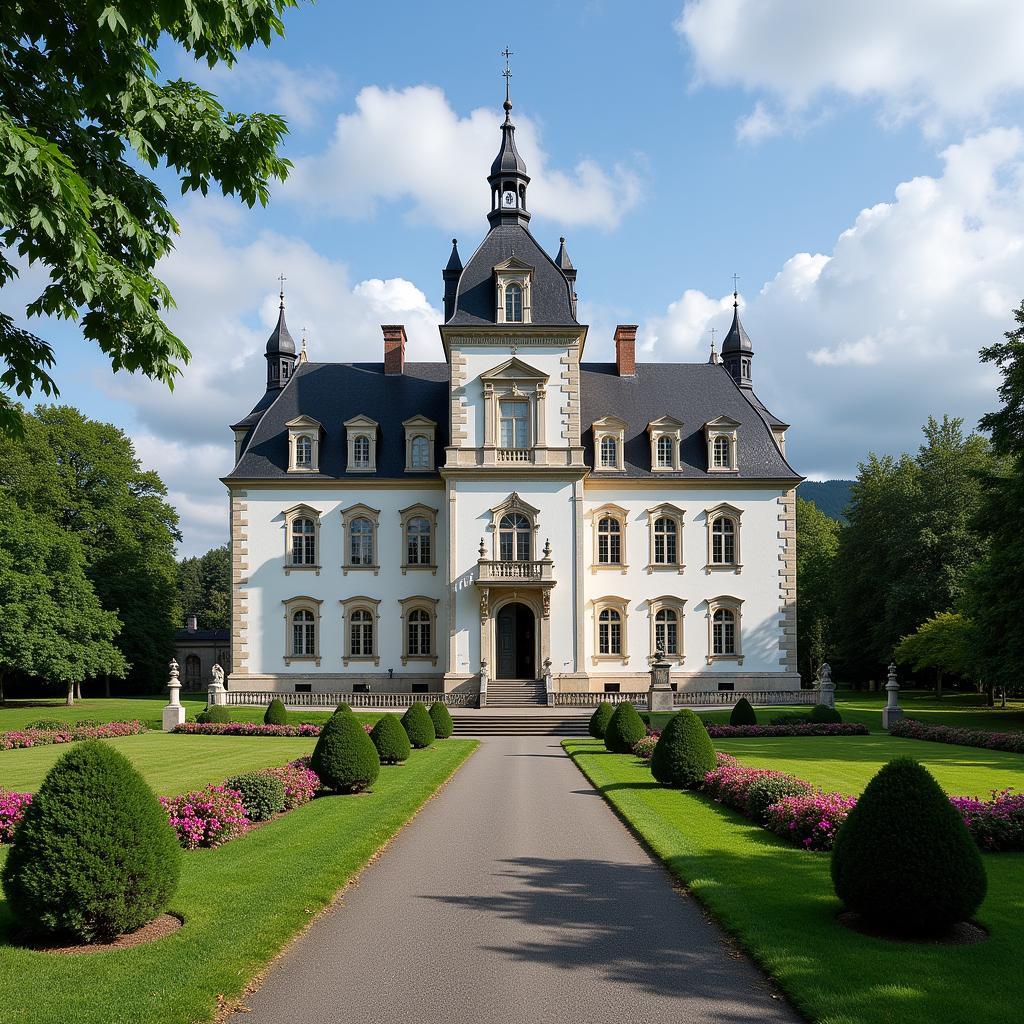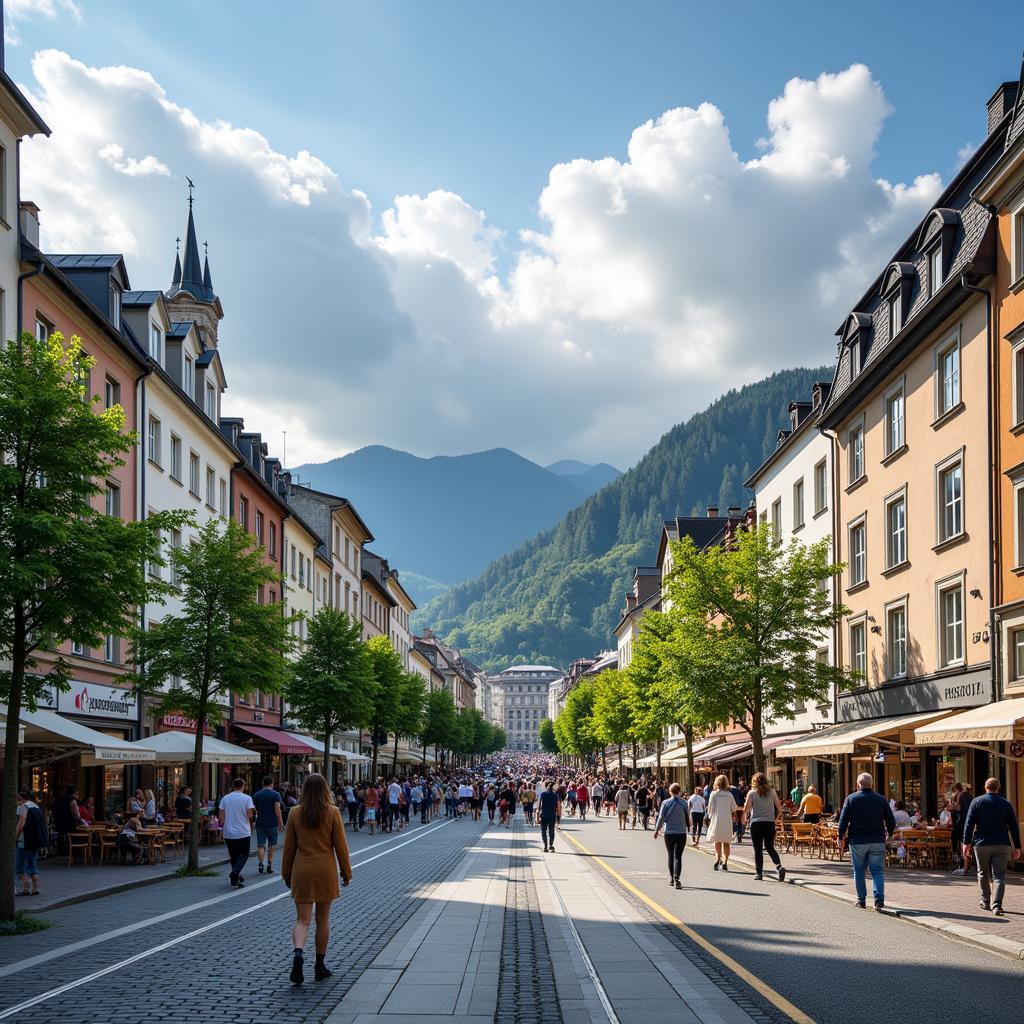The “secret society of Salzburg” is a phrase that evokes intrigue and mystery. Whispers of clandestine meetings and hidden agendas echo through the cobbled streets and historic halls of this Austrian city. But what’s the truth behind these rumors? Is there a real secret society operating in the shadows, or are these tales simply the product of overactive imaginations fueled by Salzburg’s rich history and dramatic landscapes? This article will delve into the heart of these mysteries, exploring the historical context, cultural influences, and possible explanations for the enduring fascination with the “secret society of Salzburg.”
Is There a Real Secret Society of Salzburg?
The short answer is: likely not in the way popular imagination portrays it. While Salzburg has a fascinating past intertwined with various guilds, Masonic lodges, and aristocratic circles, concrete evidence of a powerful, overarching secret society controlling the city’s affairs remains elusive. Much of the “secret society” narrative stems from the city’s historical significance, its role in the Prince-Archbishopric, and the aura of secrecy that often surrounds powerful institutions.
The Historical Roots of Secrecy in Salzburg
Salzburg’s history is rich with powerful figures and influential organizations. The Prince-Archbishops, who ruled Salzburg for centuries, wielded considerable political and religious authority. Their closed-door meetings and dealings naturally led to speculation and rumors. This atmosphere of secrecy was further amplified by the presence of various guilds and fraternal organizations, some of which employed rituals and symbols that could easily be misinterpreted by outsiders.
 Salzburg Prince-Archbishops Palace and the Historical Context of Secret Societies
Salzburg Prince-Archbishops Palace and the Historical Context of Secret Societies
The rise of Freemasonry in the 18th century also contributed to the mystique of secret societies. While Freemasonry is not inherently secretive, its emphasis on symbolism and private rituals fueled public curiosity and suspicion. Salzburg, like many European cities, had its own Masonic lodges, which further added to the perception of hidden agendas and clandestine activities.
The Power of Myth and Storytelling
The lack of concrete evidence hasn’t diminished the allure of the “secret society of Salzburg.” In fact, the absence of clear answers has allowed the myth to flourish, fueled by speculation, artistic interpretations, and the human fascination with the unknown. Stories of hidden tunnels, coded messages, and powerful figures pulling strings from behind the scenes have become interwoven with the city’s identity.
Dr. Anna Fischer, a historian specializing in Austrian folklore, explains, “Myths and legends often fill the gaps in our historical understanding. In Salzburg, the ‘secret society’ narrative serves as a placeholder for the complexities of power, influence, and the human desire to understand the forces shaping our world.”
Salzburg Today: A City of Openness and Culture
While the myth of the “secret society of Salzburg” persists, the modern city embraces transparency and openness. Salzburg is renowned for its vibrant arts scene, its welcoming atmosphere, and its commitment to preserving its rich cultural heritage. The Salzburg Festival, a world-renowned celebration of music and drama, draws visitors from around the globe, highlighting the city’s dedication to artistic expression and cultural exchange.
 Salzburg Modern Cityscape and its Openness to the World
Salzburg Modern Cityscape and its Openness to the World
Professor Markus Klein, a cultural anthropologist at the University of Salzburg, notes, “The ‘secret society’ narrative is an interesting lens through which to explore Salzburg’s past, but it’s important to remember that the city today is a vibrant and open community. The real treasures of Salzburg are its art, its music, and its people.”
Conclusion
The “secret society of Salzburg” remains an intriguing enigma. While a powerful, centralized secret organization may not exist in reality, the myth reflects the city’s complex history, the human fascination with secrecy, and the enduring power of storytelling. Exploring these narratives allows us to appreciate the layers of meaning and interpretation that shape our understanding of the past and present. The “secret society of Salzburg” serves as a reminder that sometimes, the most captivating stories are those that blur the lines between fact and fiction.
FAQ
- Are there any documented secret societies in Salzburg’s history? Yes, there have been documented guilds, fraternal organizations, and Masonic lodges.
- Is there evidence of a single, powerful secret society controlling Salzburg? No concrete evidence supports this claim.
- Why does the myth of the secret society persist? The myth persists due to the city’s history, the human fascination with secrecy, and artistic interpretations.
- What is Salzburg known for today? Salzburg is known for its arts scene, cultural heritage, and the Salzburg Festival.
- Where can I learn more about Salzburg’s history? Numerous books, archives, and historical sites in Salzburg offer valuable information.
- Are there guided tours focusing on the “secret society” theme? Some tours explore the historical context that contributed to the myth.
- Is it safe to visit Salzburg? Yes, Salzburg is a safe and welcoming city for tourists.
Need assistance? Contact us 24/7: Phone: 02043854663, Email: [email protected], or visit us at Zone 34, Bac Giang, 260000, Vietnam. We are always here to help.
For further information about promoting peace and understanding across cultures, explore these related articles on our website: [Building Bridges: Fostering Intercultural Dialogue] and [The Power of Storytelling: Inspiring Peace Through Narrative]. We encourage you to join our global community working towards a more peaceful world.